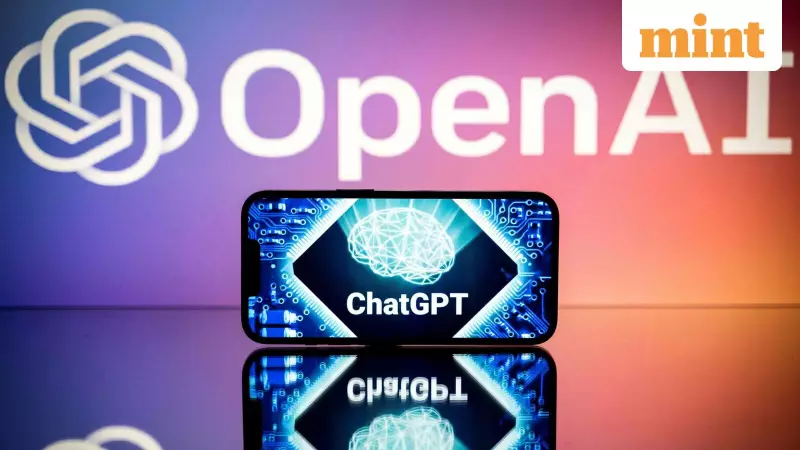
The landscape of academic and scientific research is undergoing a radical transformation, powered by a new generation of artificial intelligence. So-called "deep research" tools are compressing tasks that traditionally took years into mere hours, promising unprecedented efficiency. However, this acceleration brings forth a critical question: can we trust the output of these AI scientists?
The Rise of the AI Research Assistant
Powerful AI-based research assistants from tech giants like OpenAI, Google, and Meta, alongside specialized platforms such as Perplexity, Alibaba, ResearchRabbit, STORM, and Scite, are rebuilding the once-linear research pipeline. These systems integrate large language models with sophisticated information retrieval and automated reasoning frameworks.
A striking example is Edison Scientific’s Kosmos, launched on 7 November. The company claims this AI can complete six months of research in a single day, processing 1,500 academic papers and writing 42,000 lines of code in one run. Its creator, Sam Rodriques, CEO of FutureHouse and Edison Scientific, has boldly introduced Kosmos as their "new AI scientist," noting its findings are 79% reproducible and it has already contributed seven discoveries in fields like neuroscience and materials science.
Other tools are rapidly emerging. ThesisAI can draft up to 80 pages with inline citations from a single prompt, while platforms like Elicit, Consensus, and Paperguide automate literature reviews across a repository of 100 million research papers.
The Tangible Benefits and Productivity Boom
The appeal of these tools is undeniable, particularly when measured in productivity and cost. A January 2025 review in the journal Frontiers in Pharmacology found that AI reduced researchers' workload by five to six times and slashed costs by a factor of ten for systematic literature reviews.
The advantages extend beyond speed. An October 2024 analysis from Northwestern University of 74.6 million papers revealed a measurable "citation impact premium" for research referencing AI. These papers were not only more cited but also more interdisciplinary and more likely to rank among the top 5% most cited in their respective fields.
Further evidence comes from a 10 December 2024 paper by researchers from Tsinghua University and the University of Chicago. After analyzing 67.9 million research papers, they concluded that scientists who adopt AI tools publish 67% more papers and receive 3.16 times more citations than their non-adopting peers.
The Reliability Crisis and Ethical Quandaries
Despite the dazzling potential, a shadow of doubt looms over AI-generated research. Persistent issues like data fabrication and hallucination remain significant hurdles. According to the AI code review platform Graphite, AI-generated articles overtook human-written ones online in November 2024, making it harder to distinguish authentic work without dedicated detection tools.
Accuracy is a paramount concern. GPT-based citation tools have been shown to have error rates of 20-30%. Even the advanced Kosmos model has a reported unreliability rate of approximately 20%. Sam Rodriques admits the model sometimes "chases statistically significant but scientifically irrelevant results."
Multiple investigations have flagged a surge in undeclared AI-generated text in academic papers, raising alarms about plagiarism and copyright violations. In November 2024, an analysis of over 500 suspected cases in journals from publishers like Elsevier and Springer Nature highlighted the growing credibility crisis.
Perhaps most concerning for the future of science is the finding from the December 2024 study that while AI-enabled scientists publish more, they explore fewer new ideas. This suggests a potential narrowing of scientific inquiry, where AI augments productivity at the expense of bold, original breakthroughs.
Navigating the Future: Human Oversight is Non-Negotiable
The consensus emerging from universities and publishers is clear: AI is a powerful assistant, but it cannot replace human expertise, judgment, or accountability. Leading institutions are establishing clearer guidelines to mitigate risks.
Bond University now endorses specific AI tools for staff and students but stresses that users remain ethically responsible for all AI-generated content. The prestigious JAMA network explicitly states that AI tools do not qualify for authorship and has launched educational resources on the topic. Major publishers Springer Nature and Elsevier maintain that while AI can assist, authors must disclose its use and retain full accountability for their work.
The key challenge is balancing the incredible speed and cost-efficiency of AI with scientific reliability. As the technology continues to evolve, one principle remains steadfast: human oversight is essential to ensure that research stays credible, ethical, and truly scientific. The machine can suggest the path, but the human must still hold the compass.






